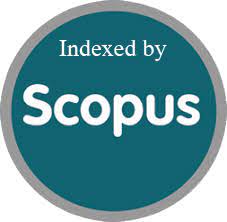IMPACT OF URBAN SPRAWL ON ENVIRONMENTAL SUSTAINABILITY IN DELHI. (ANALYZING THE EFFECTS OF RAPID URBANISATION ON AIR QUALITY, WATER RESOURCES, GREEN SPACES AND BIODIVERSITY
DOI:
https://doi.org/10.7492/z9ckvc11Abstract
The rise of the economic, social, and technological sectors is made possible by urbanisation, which also helps society by creating job opportunities and better living and healthcare conditions. However, environmental deterioration and congestion are two primary drawbacks of urbanisation. Urban green spaces (UGS) such as parks, gardens, roadside vegetation, etc. must be created and maintained with careful thought in urban settlements through comprehensive land use planning in order to achieve sustainable and ecologically friendly urbanisation. The term "urban sprawl" describes the unchecked growth of cities and towns, which frequently leads to the encroachment of urban areas onto neighbouring rural or undeveloped terrain. This tendency has been noted in numerous Indian cities.
In India, increasing urbanisation and population increase have resulted in the spread of cities and towns, raising serious concerns about urban sprawl. In-depth analysis of urban sprawl's causes and varied effects on the environment, society, and economy are provided in this research paper's analysis of urban sprawl in India. Based on extant literature and empirical research that is particular to India, this study investigates the ramifications of urban sprawl and proposes approaches and policy directives aimed at mitigating its adverse impacts and advancing sustainable urban development within the nation. With an emphasis on its causes and effects on the environment, society, and economy, this research paper offers a thorough overview of urban sprawl in Delhi.

















